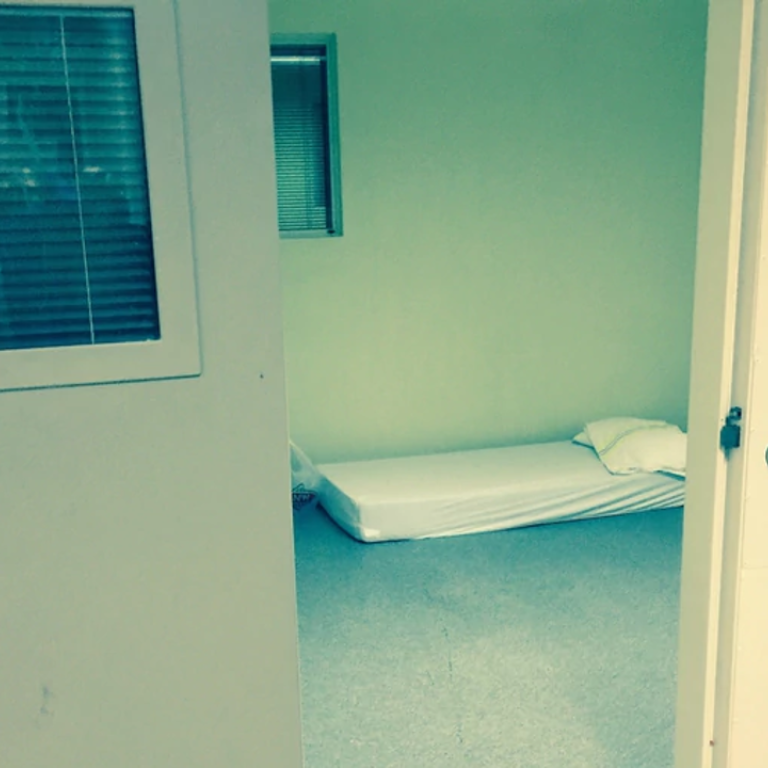
Intellectually disabled patient in New Zealand has lived in mental health unit more than 10 years
Country’s health ministry did not act despite being aware of the case
By Natalie Akoorie
Mental health care for the intellectually disabled in new Zealand is so underfunded it has reached ”crisis point”, with one patient living in a secure unit for more than a decade, according to a damning letter to the country’s Ministry of Health.
The Government is denying there is a crisis, with Associate Minister of Health Nicky Wagner defending the national service, however the letter says the Ministry of Health [MOH] knew about the long-term patient in Canterbury and did nothing about it.
The letter, leaked to the Herald, is signed by Mason Clinic director Dr Jeremy Skipworth and Wellington clinical psychologist Nigel Fairley, on behalf of the five district health boards that provide regional forensic mental health services, Waitemata, Waikato, Capital and Coast, Canterbury and Southern.
It said patients were being assessed in prisons instead of hospitals, there were repeated violent assaults, and no ability to separate youth and female patients in some forensic units around the country.
Forensic mental health services provide compulsory care to intellectually disabled patients charged with a criminal offence.
The letter, dated May 5 and copied to the Human Rights Commission, Children’s Commission, Director of Mental Health, Health and Disability Commissioner and the Office of the Ombudsman, states there is widespread concern in the sector that the current level of resourcing is not enough to fulfil the provisions of the Intellectual Disability (Compulsory Care and Rehabilitation) Act 2003.
“The failure to ensure adequate capacity within the sector is such that there is now a serious and in some areas imminent risk of harm to those individuals unable to access the appropriate care in existing services and the community.”
The concerns include:
•Prisoners on remand with intellectual disability [ID] have little chance of accessing a hospital bed
•Assessments are taking place in prison
•Recommendations to courts and parole boards are increasingly framed by resource availability which exposes the prisoner, sector and providers to harm
•Prisoner access to healthcare and appropriate rehabilitation is limited
•Forensic mental health services are admitting significant numbers of ID patients to beds that are supposed to be for the mentally ill
•There was no way to track the true extent of the crisis.
At Canterbury DHB chief of psychiatry Dr Peri Renison said the lack of a purpose-built facility had resulted in repeated assaults on staff and patients, some witnessed by young people.
She said the placement of two intellectually disabled patients in the forensic mental health service was a significant breach of rights reported to the Director of Mental Health, Dr John Crawshaw, each quarter.
“One of these men has lived in the forensic unit for well over 10 years despite many discussions with MOH about the need for a suitable placement for him.”
Renison said the level of concern was so high that Canterbury DHB was preparing to close other mental health inpatient services in case staff need to be diverted to the 10-bed Assessment Treatment and Rehabilitation Unit when staff there refused to work for safety reasons.
“This is an unacceptable situation for patients, our staff and our community and it appears we are in the midst of a national system failure.”
“The MOH is responsible for the planning and funding of appropriate services for disabled people, however we don’t see any movement in terms of expanding these services or any urgency with responding to the issues we are raising.”
In 2015 Waitemata DHB signalled to the Ministry that a minimum eight extra “step-down” hospital beds were required in Auckland immediately.
“We were advised that a funding allocation would be sought, but were then further advised this was unsuccessful,” Skipworth wrote.
“At this point a proposed review of the availability of spare hospital capacity in other parts of the country was commissioned.’‘
Skipworth said the review identified a “national crisis” in available hospital level ID secure beds and a growing issue around the need for long-stay provisions for high risk patients requiring hospital oversight.
The letter called for an urgent comprehensive independent review of the sector to address the “systematic capacity failures” affecting the national service.
Under questioning from Labour’s health spokesman David Clark in Parliament yesterday, Wagner said there was not a national system failure.
“I am advised by the Ministry of Health that it has been able to manage growing pressure through regional responses and individual solutions ... that to date the number of beds has been sufficient to meet demand.”
She said a new national service was being developed for high-needs patients and a long-term solution was to be finalised soon.

